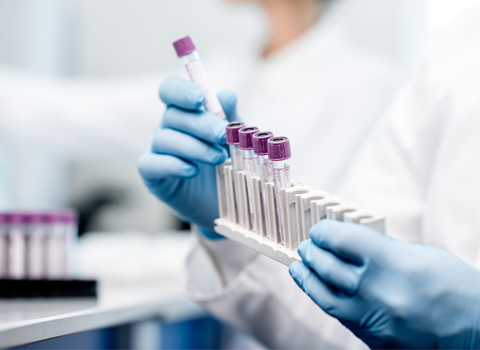STD/STI prevention: Simple strategies
No matter your age or experience, it’s important to protect yourself and your partners from sexually transmitted diseases and infections (STDs/STIs). These simple steps can help you stay safer and support your sexual health.
Talk with your partner
Before sex, take some time to discuss:
- Boundaries
- STD/STI testing history
- HIV status
- Whether you have other partners
Clear communication helps ensure informed consent, builds trust, and reduces the risk of transmission.
Consider lower-risk activities
Not all sex has to be about penetration with the penis. Activities like mutual masturbation or using sex toys can be pleasurable and lower the risk of infection. Just be sure to clean your toys before and after each use.
Use condoms and lube
Condoms provide a protective barrier against many STDs/STIs. Latex condoms offer strong protection, but non-latex options are available for people with allergies. Water-based lube can help prevent your condom from breaking.
Use protection during oral sex
STDs/STIs can be spread through oral sex. To lower your risk:
- Use condoms or dental dams
- Avoid oral sex if you or your partner have cuts or sores in your mouth
- Maintain good oral hygiene
Plan ahead for a night out
Substances like alcohol or other drugs can affect your decision-making in the moment. If you plan to drink or use drugs, talk with your partner ahead of time about boundaries and consent. Avoid sharing needles, syringes, or other drug consumption equipment.
Get vaccinated
Vaccines can be a powerful addition to your sexual health routine. Vaccines can help protect you against:
- Hepatitis A
- Hepatitis B
- Human papillomavirus (HPV)
- Mpox
Ask your health care provider which vaccines are recommended for you.
Make regular testing part of your routine
Many STDs/STIs don’t have noticeable symptoms. Getting tested is the only way to know for sure—and early treatment can protect your long-term health.
- Get tested at least once a year
- Get tested every 3–6 months if you’re on PrEP, living with HIV, or have multiple partners
Find out what to expect when getting tested.
Find out about PrEP
Pre-exposure prophylaxis (PrEP) is a medication that helps prevent HIV. It does not protect against other STDs/STIs, so consider combining it with other prevention methods. Learn more about PrEP and find a provider near you.
Know your options: PEP and DoxyPEP
Post-exposure prophylaxis (PEP) is a medication that can prevent HIV. DoxyPEP is a medication that may help prevent bacterial STDs/STIs like chlamydia, gonorrhea, and syphilis for some individuals. Both PEP and DoxyPEP work best if taken within 24 hours of exposure and no later than 72 hours. Talk to your provider to learn more about whether PEP or DoxyPEP might be right for you.














